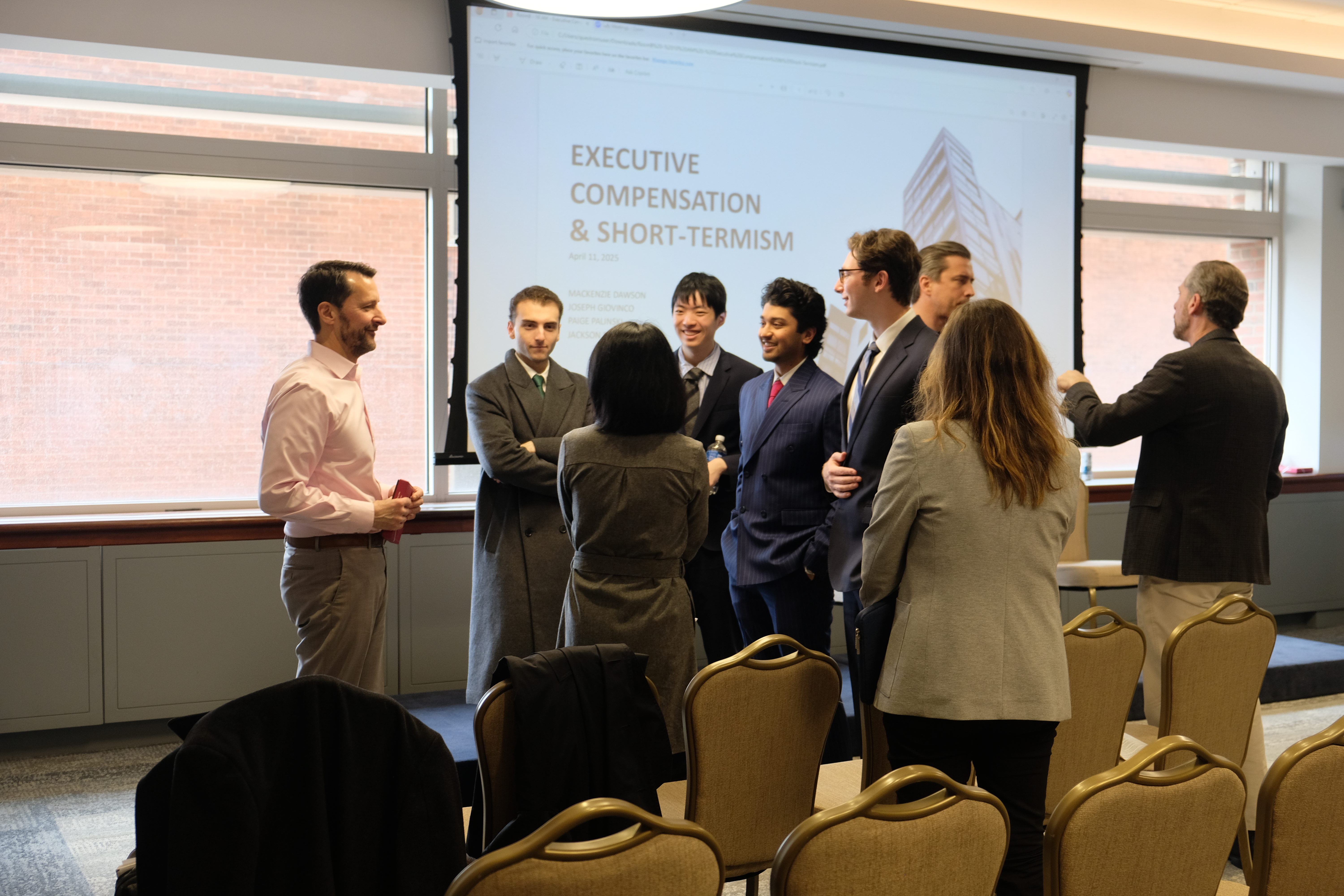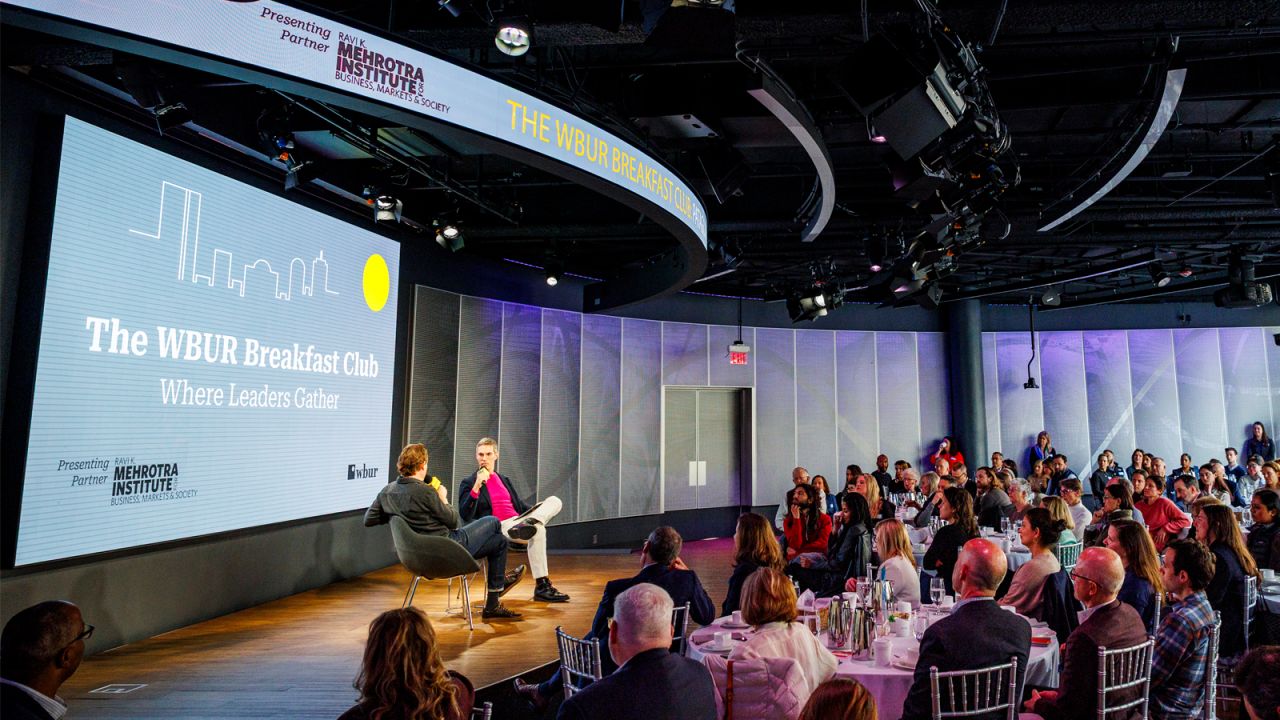
Going Big with the Honors Capstone Projects
The Mehrotra Institute for Business, Markets, & Society (MIBMS) Inaugural Summit wasn’t just an event, it was the culmination of a semester’s worth of effort on the part of Questrom undergrad honors students.
Each spring, the honors students take on a capstone project to finish out their senior year, the final leg of their Honor Program’s journey. This year, Questrom Professor Patricia Cortes shaped a different experience. “Previously, students worked on individual research papers under the guidance of a faculty advisor. In the new format, they collaborate on small group research projects – a more realistic and common professional setting – where they can develop teamwork and collaboration skills,” said Cortes. Another new twist? Each group presented their findings at the two-day summit, where a panel of industry and faculty experts offered insights and feedback, providing a real-world connection that was missing in the previous format. And their final papers are now being published through the Mehrotra Institute, giving students the opportunity to contribute to a broader academic and policy conversation.
The research topic chosen for this year was the concept of short-termism, described by Marcel Rindisbacher, the Director of the Mehrotra Institute as “the practice of prioritizing immediate gains over sustainable, long-term value creation.”
Throughout the summit there were opportunities to mingle with professionals in the field. In their course review, one student said this was the best part, “I really liked getting to meet industry professionals at the event and getting to chat with them. I think this was one of the most meaningful parts of the whole experience.” (Note that all students’ quotes are shared anonymously from the course review.)
“Having students take the lead on the summit was a unique learning opportunity. They immersed themselves in a topic, developed research skills, communicated their findings to a broader audience, and prepared thoughtful questions for the panel—all of which were incredibly valuable,” said Cortes.
The research itself was also worthwhile. “The most valuable part of the capstone experience was probably getting to work with professors on researching an interesting, real world business topic that’s relevant right now,” said one student.
“Because of the group-based format and its connection to the summit, we were able to attract top research faculty as advisors. In some cases, we even formed advisory teams with complementary strengths, tenured faculty working alongside professors of the practice who could engage with the practitioner side,” said Cortes. “This was a big improvement over past years, when faculty engagement was lower and students often struggled to find advisors. For many students, this was the first time they had the opportunity to work so closely with a faculty member.”
“Our students produced strong research papers, learned directly from leaders in the field, and created new knowledge on an important topic that was shared beyond the classroom,” said Cortes. Although there may be tweaks to the new format for next year, faculty and students agree that the new approach was a win.
See the 2025 Mehrotra Short-termism Summit Proceedings here.



